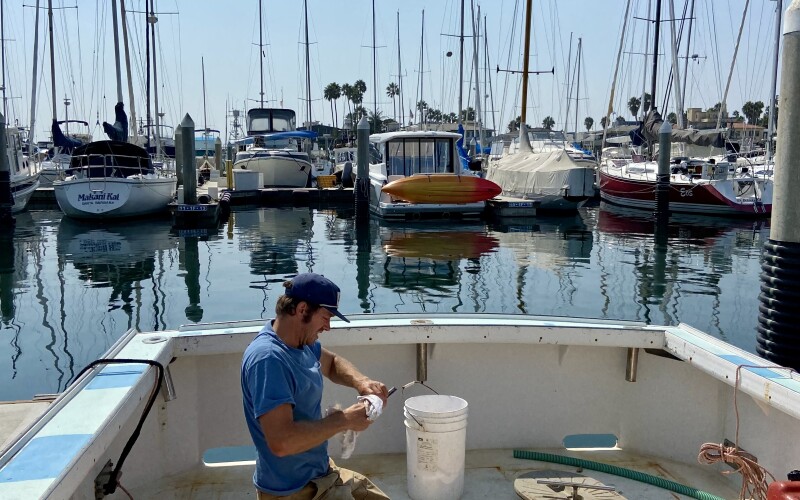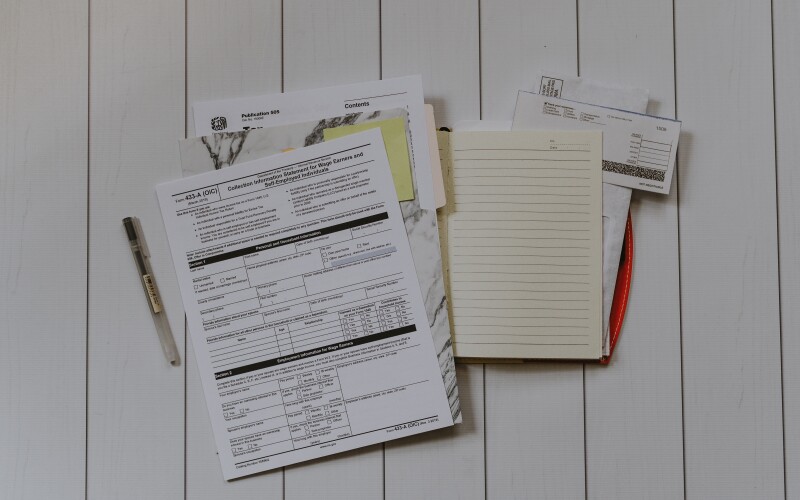The end of the year signals that it's time to get our receipts together to pay “the man." To follow up on our budgeting conversation (Fish Wife Maureen Marinkovich guides seasonal income management), I picked the brain of an accountant who understands the industry and offers tips on how to prep like pro.
Janiese Stevens and the team of Wallstrum Stevens CPA come from a big commercial fishing family, so they know the nuances and personalities, expenses, and how to make taxes less of a headache for salty folk like us, and you don’t have to live in the same state to use their services.
I learned about Stevens through a member of our Partners of Commercial Fishermen community, and my husband, fisherman Chris Dabney, and I used their services for the 2022 tax season and plan to use them again. Stevens was generous with her time to deliver thoughtful information that may answer the questions you’ve now formed in your head. (If you already have a CPA, consider mentioning some touchpoints here to maximize your tax benefits.)

One of the biggest takeaways from our conversation was learning that "bank or credit card statements do not suffice in the event of an examination,” Stevens said. Instead, keep receipts of any expense you deduct. She suggests writing the business purpose on the back, putting receipts in a manila envelope if needed in the future, and keeping records and tax returns for seven years. “Any asset you still own, like a vehicle or home, keep purchasing documents of those throughout their life, even if it is beyond seven years,” Stevens adds.
Stevens also recommends keeping the fishing business separate. “I tell clients to open a separate bank account or credit card to use specifically for fishing-related expenses,” Stevens said. “Then at the end of the year, they only have a few sources they are extracting information from.”
When asked about deductions, Stevens says the IRS allows anything “ordinary and necessary” to fund a fishing business, such as gear, supplies, InReach or Iridium satellite phones, etc. Here is a more comprehensive list of accepted deductions for commercial fishing businesses:
- Gear
- Supplies
- Satellite messengers and a percentage of cell phones
- Small electronics used on the boat
- Vehicles are allowed with the caveat – if it is a “mixed-use” asset, meaning you use it for both personal and business, you are asked to keep a log so you can say how many miles you drove in a year and how many of them were business.
- For example, if someone says they drove 5,000 miles in a year and 2,500 of them were business, then ½ of the fuel, insurance, repairs, and interest is deductible, and a percentage of the cost of the vehicle can be depreciated over time. The same goes for business use of the home. If you have an exclusive space you use for work, that percentage of rent or mortgage, real estate taxes, etc., can be deducted.
- Travel can be deductible, but not “commuting.” (Ex, industry-specific travel, such as the Pacific Marine Expo.)
- Groceries or per diem (rate for days at sea)
- Small tools used for fishing
- Crew members license
- The portion of tax prep and legal fees associated with commercial fishing
- Other items you spent specifically for commercial fishing
- Meals with a business purpose.
To keep organized, Stevens prefers to have expenses categorized and added up. “Then, if I have questions about what is in each category, I can ask.” In addition to expenses, collect any 1099’s, W-2s, and other year-end tax documents you received.
If you’re looking for accounting services, you can email Janiese Stevens directly at [email protected] or call Wallstrum Stevens CPA LLC at (907) 512-2726. Wallstrum Stevens CPA accepts clients through February.
Click here to see the full interview and learn more tax-saving information, including estimated taxes, managing cash flow, and tips for reducing your tax bill, on pocfpride.com.







